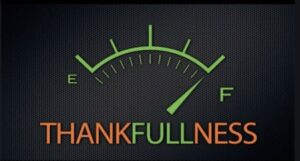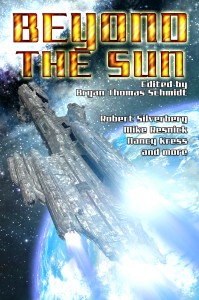 December 1st is always an odd time. A time when we shift from a period of reflection and thanksgiving formalized in the Thanksgiving Holiday—which, of course, also has ties to pilgrims and Indians colonizing the states—to the season of greed and giving, Christmas. Now, Christmas for Christians signifies a sacrifice and gift of a Savior, which if you believe in it can and should have real significance. But for many, even some Christians, that blessed gift is often overshadowed by the commercialized Santa-fication of the holiday as signified by a famous jolly old elf and his elf assistants and reindeer with shiny, lit up trees and candy canes and tinsel and so much pomp and circumstance as much centered on receiving as giving.
December 1st is always an odd time. A time when we shift from a period of reflection and thanksgiving formalized in the Thanksgiving Holiday—which, of course, also has ties to pilgrims and Indians colonizing the states—to the season of greed and giving, Christmas. Now, Christmas for Christians signifies a sacrifice and gift of a Savior, which if you believe in it can and should have real significance. But for many, even some Christians, that blessed gift is often overshadowed by the commercialized Santa-fication of the holiday as signified by a famous jolly old elf and his elf assistants and reindeer with shiny, lit up trees and candy canes and tinsel and so much pomp and circumstance as much centered on receiving as giving.
It’s an odd shift to go from gratitude to greed, yet so many of us seem to manage it seamlessly year after years. I make no claim of being an exception, but what I am as a poor person however is someone used to meager giving and receiving due to circumstances in a way that lends itself to philosophical thought. And that brings us to today’s question: What Are You Truly Thankful For?
 Are you thankful for the people who love you in spite of your imperfections, mistakes, and other failings? Who keep coming back time after time to support and check on you no matter what? Who you can call day or night and count on night or day when the going is tough or when it’s really easy? Most of us have someone like that, or more than one.
Are you thankful for the people who love you in spite of your imperfections, mistakes, and other failings? Who keep coming back time after time to support and check on you no matter what? Who you can call day or night and count on night or day when the going is tough or when it’s really easy? Most of us have someone like that, or more than one.
Are you thankful for the material things you keep gaining in abundance—a DVD collection, a book collection, music collection, wardrobe, money, a car, makeup—you name it?
Be honest. What first comes to mind when you hear the word “Thankfulness.” It is likely there that your true treasure lies. Ask yourself is that really where it should be? Is what you are most instinctually thankful for the thing you should value the most when it comes to gratitude?
For years, I would have answered “What Are You Truly Thankful For?”with things like my guitar, keyboard, banjo, books, CDs, DVDs or something else material. These days I am far more likely to answer with my pet’s names because after years of struggles with suicidal depression after a horrendously traumatic divorce, they are the ones who loved me unconditionally every day and got me to get out of bed and find the will to keep going. I might not have cared if I lived but I’d be damned if these poor once abused and abandoned animals I’ve taken in would be cut one damn day short of the life they deserve because of me. Seriously. They love me even when I lose my temper and am short with them. I couldn’t possible ever leave them without someone to take care of them. And so I went on. And things got better, and here I am. Because of Louie and Amelie, and now Lacy too.
For me, at least, that is an object for gratitude truly worthy of the name. And I am thankful that I have them to remind me of what true fortune is. What about you? You get up, you eat, you breathe, you drive a car, leave a house you own or rent but consider “your home”—for most of you its nice and you take pride in it—what do you truly feel gratitude when you think about? That’s the answer to “What Are You Truly Thankful For?” that I want to hear. Thats the one that should be first on your minds.
If it’s not, ask yourself why and perhaps reconsider your priorities a bit as we go into a season of greed that could erase the good will and positive vibes the prior season of thanksgiving has left us all with, or should have. I am not judging you. I am trying to inspire you: to see the true value where it really is and embrace it. To make thankfulness truly a philosophy of living. I am trying to do it and even pondering it changes your outlook and your attitude. That’s unavoidable.
Which sounds better: walking through life with true gratitude for something meaningful you have that you never deserved and money can’t buy or walking through life lusting for the next gratefulness fix, one that will fade away as soon as the next desire overcomes and takes its place?
Consider this a challenge. When you think of the word “thankfulness,” What Are You Truly Thankful For? Is that the best it can be? If not, what are you going to do about it.
For what it’s worth…-




